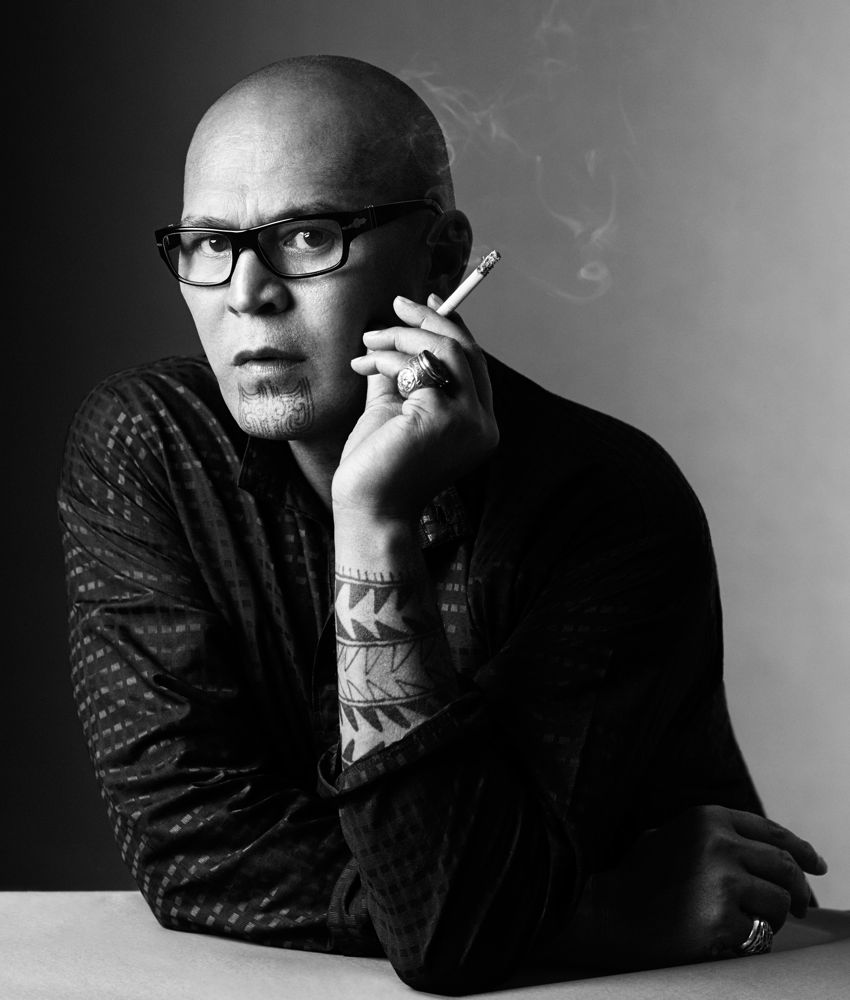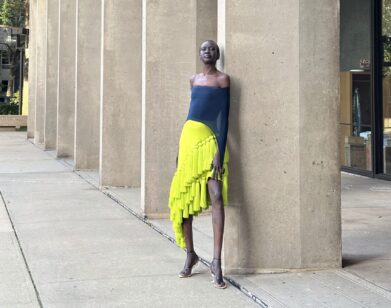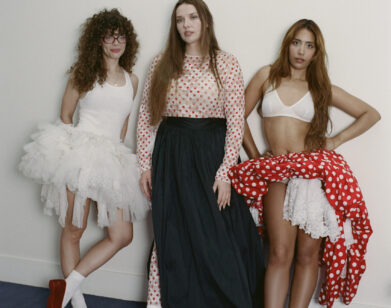Paul Rowland

Confidence or lack of confidence; fragility or not being fragile. There has to beâ??something extra that makes you. Paul RowlanD
DAVID COLMAN: So you’re between gigs now …
PAUL ROWLAND: Yeah, that’s a good way to put it. [laughs] I finished at Ford in a kind of a mutual understanding … That’s basically what happened.
COLMAN: And you’re married, right?
ROWLAND: I’ve been with a partner for about 20 years and we have two sons, a four-year-old and a two-year-old.
COLMAN: What’s your husband’s name? I actually prefer “gay lover,” because I’m trying to bring a sense of shame and scandal back to gay relationships—
ROWLAND: [laughs] You can be as scandalous as you want with me. I love scandal. That’s how I’ve made a living pretty much.
COLMAN: So tell me the Paul Rowland story. Born? Raised?
ROWLAND: Hot Springs, Arkansas. I went to college at the University of Arkansas and moved to New York in 1985. I had always wanted to live in New York. I have B.A. in painting, so that was my main reason for moving to New York City. I was a waiter at Nishi restaurant, which was a very posh Japanese place on the Upper West Side. Madonna, Cher, Catherine Deneuve—all those people were there. It was an “in” place and a lot of fashion people went. I met Bethann Hardison and Azzedine Alaïa, and they were like, “Oh, you should be a model.” To be honest, I really had no idea what that was. But I thought, why not? I went to Click—and that’s when Click was really good. My agent ended up leaving Click and opening an agency called Men, and I went with her. One day there was some drama, some booker didn’t come in, so I said, “I’ll answer the phones for you.” That’s how I started to become a booker—mostly because I liked the stability of a paycheck, because with modeling there really isn’t any.
COLMAN: You started out as an agent for Men then?
ROWLAND: After a while, I realized the money is in the women. So in 1988, I opened Women and Michele Quan was my first big model. And then Emma Balfour. Michele was actually working at Indochine—that’s where all the fabulous girls went. And then Kate [Moss] came.
COLMAN: How did she arrive?
ROWLAND: She was friends with Mario Sorrenti, who we represented as a model, and Kate had come to New York to be with an agency called IT, which no longer exists. She went to their office and they made her wait for, like, two or three hours and she got pissed off, so Mario said, “Oh, you should come over to my agency.” He brought Kate over, and we just clicked.
COLMAN: Do you remember what you first noticed about her?
ROWLAND: There was a real innocence about her. She was this kind of starry-eyed girl who just was living life, and it was completely infectious to anyone. She never wanted to know what her options were or what her jobs were. She was just in this world that was very kind to her and she went with it.
COLMAN: Did she have great style from the get-go?
ROWLAND: Always. The first time I met Kate, she had on track pants, sneakers, and this full-on white shearling to-the-floor Vivienne Westwood coat. Messy hair.
COLMAN: What is it that has made her so successful?
ROWLAND: For me, the reason Kate became so incredibly successful is, first of all, the face is beyond—the eyes, the nose—photographically, it’s incredible. And then the energy that she has before she’s on set. She’s like a little girl. Then on set, she just transforms into this seductive woman-child thing, and no one had seen that before. You had these huge, glamazon, over-the-top girls, and all of a sudden here’s this little ingénue of sorts. That is seductive. Another thing with those girls—like Kate, Naomi, Stella—they lived in that world. It wasn’t their job. It was their world.
COLMAN: How did you cross paths with Naomi?
ROWLAND: I knew her for years, especially through Kate. They were good friends. She’d been at several agencies. Girls are like that—agencies become hot and trendy and all those girls move. I think she felt a bit stagnant at Elite, so she decided to come to Women. Everyone in the business told me, “You’re crazy.” [laughs] But I’m a strong person and I like strong character. Naomi and I got on, and we’re still very good friends to this day. I respect her tremendously—I mean, of course, you have fights. But the thing with her is you just can’t be afraid of her. Because she can be very intimidating—especially for people who work for her. But I was the opposite, and she respected it. I never had problems … Well, a few problems, but nothing major. [laughs]
COLMAN: Got it.
ROWLAND: So anyway, I did Women for a long time, and then I left and started Supreme in 2000, which, when I was there, was heaven. Women was very established by that point, so I decided to open, like, a sister agency. I like to make things that push an aesthetic or an image, so Supreme had the kinds of girls I wanted, the kind of girls that that Marc Jacobs would love. They weren’t necessarily the most beautiful, but definitely more interesting, kind of an East Coast intEllectual beauty: Daiane Conterato, Hanne Gaby Odiele, and Alana Zimmer—there were a bunch. They all were kind of the same height, 5’11”, and stick thin. We were very unapologetic about how skinny they were, because the clothes looked better. We worked for fashion, right? We’re not in Ohio. And for me it’s always been more about wanting to contribute creatively and inspire.
COLMAN: How so?
ROWLAND: With the girls. The classic case is Kate. You send that girl to a casting director before she’s Kate Moss, and they think you’re crazy. Not everyone was like, “Oh my god, yeah. She’s amazing.” That’s so not the norm.
COLMAN: What were some early successes or not successes with Kate?
ROWLAND: Well, to be honest, I would love to sit here and tell you some story of how everyone said no, but they really didn’t. I mean, she did The Face in London with Corinne Day, who is the one who understood Kate, then she came to New York and did a story for Bazaar with Patrick Demarchelier, and Calvin was looking for the next … It was just timing. It was crazy. But that’s not the norm. With certain girls, it would be like, “I don’t get her,” or “Why are you sending me this freak?” And then in six months David Sims would shoot her. That’s the thing that bugs me about this business, how everyone has amnesia. I mean, there’s nothing wrong with just saying, “I really didn’t get it in the beginning and now I do.” That’s a very admirable, respectful, honest thing to say. But everyone is like, “Oh my god, I loved her forever!” You know, Daria Werbowy came to see me at Women. She came in, and I was either having a bad day or I wasn’t paying attention, and I said, “No, I’m not interested.” When I tell people that, they’re like, “Wow, you really don’t have an eye.” I’m just like, well, shit happens—some days you just see it and some you don’t. When I first started, people were much more willing (A) to go with their gut and not worry about what their boss thinks, and (B) take chances and celebrate the oddity of humanity and beauty in many different forms.
COLMAN: Yeah, that’s not the world today.
ROWLAND: No. It’s too bad, because I’m talking about a girl that you would see and immediately have some instinctual feeling about. Now you have to get all these other people to approve it. It’s unfortunate.
COLMAN: Hopefully, you can do something about it when you go back to work.
ROWLAND: Maybe. We’ll see.
For more model agents, click here.






